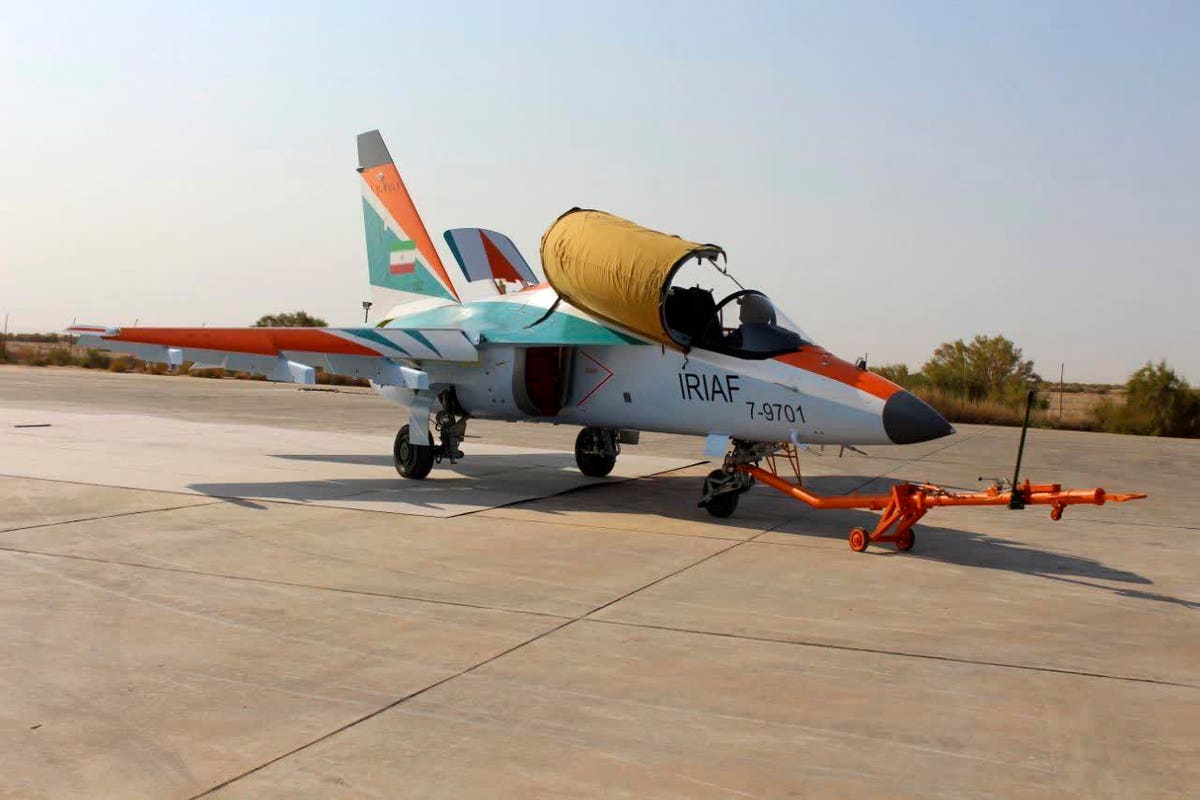Jets Iran ordered from Russia have begun arriving in the country, according to Iranian media reports. However, these aircraft are not the Su-35 Flanker fighter jets Tehran had hoped to begin receiving this year.
On Saturday, Iran’s semi-official Tasnim News Agency reported the country received subsonic Yak-130 trainer jets, citing undated imagery and video purportedly showing the new aircraft bearing IRIAF (Islamic Republic of Iran Air Force) markings. At least two Yak-130s are reportedly in Iran’s central Isfahan province and are now in IRIAF service.
While these trainers, which can also serve as light combat aircraft, are not nearly as capable as the Su-35, their delivery may indicate Russia will also deliver that fighter at a later date.
In recent weeks, there were increasing indications and reports Moscow had reneged on a prior agreement to sell Tehran 24-50 of those multirole super-maneuverable Sukhoi fighters. Iran has supplied Russia with hundreds of drones, mostly single-use loitering munitions, for use in its ongoing war against Ukraine.
Farzin Nadimi, a defense and security analyst at the Washington Institute for Near East Policy, could neither confirm nor deny the veracity of the photos and video of the Yak-130 delivery. Nevertheless, he reasoned that if the delivery is indeed confirmed, it could “be a logical step before acquiring fourth-generation fighters” and also “suggests the Su-35 deal will eventually move forward at some point in the future.”
Iranian officials had expressed optimism Russia would deliver Su-35s as early as March this year. Such optimism has since been tempered, with one report suggesting that Russia had not fulfilled its end of a deal to supply Iran with 50 Su-35s Tehran had paid for in 2021 and expected to begin receiving this year.
There has long been widespread speculation Iran would at least receive the 24-or-so Su-35s Russia has already built for Egypt, which has since canceled the order. The Ukraine war may have disrupted prior delivery plans and schedules.
Either way, the Yak-130 delivery seemingly confirms Russia is at least delivering something to Iran after everything Tehran has supplied Moscow over the past 18 months.
The last time Russia transferred Iran military aircraft was in the 2000s, and that was a mere six Su-25 Frogfoot attack planes, which were also subsonic. (Perhaps the present Yak-130 deal could prove similarly limited.)
In 2019, the U.S. Defense Department’s Defense Intelligence Agency speculated Iran would seek Yak-130s from Russia along with S-400 air defense missiles, Bastion coastal defense systems, T-90 tanks, and Su-30 jets once the UN arms embargo expired in October 2020. Tehran has since opted for the more advanced Su-35 over the Su-30.
Tehran’s interest in the Yak-130 trainer may seem peculiar in light of its repeated touting of its domestically-built trainers. Just last March, Iran inaugurated the production line of its indigenous HESA Yasin training aircraft. As with the Yak-130, the Yasin can train pilots on the basics of more advanced fourth-generation fighters and serve as a light combat aircraft.
Aside from developing such trainer jets independently, Iranian officials dubiously claim the country can produce fourth-generation aircraft.
Nevertheless, the Yasin and other similar Iranian aircraft may not give Iranian pilots the specific skillsets they will need to operate the Su-35.
“While Iran has equipped the latest update of its Yasin jet trainer prototype with a glass cockpit and some advanced features, it is still far away from series production,” Nadimi told me.
Furthermore, he added that indigenous Iranian training aircraft “is also not known to have been developed with particularly Russian fourth-generation fighter technology in mind.”
Consequently, the delivery of these Yak-130 subsonic trainers could indicate Iran will eventually receive its long-sought-after Su-35s. And, as far as Tehran is concerned, it’d be a lot better late than never.
Read the full article here





